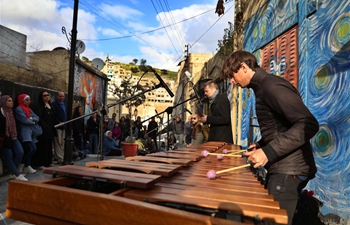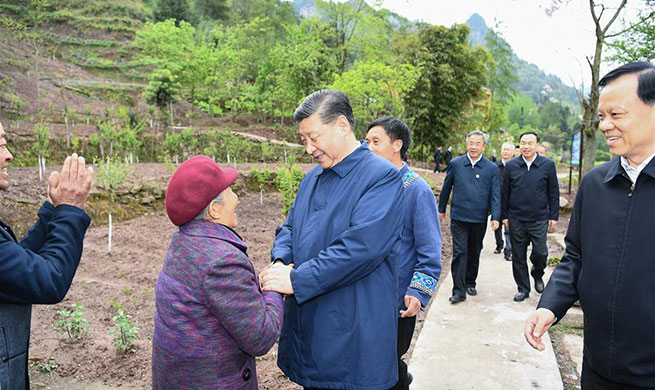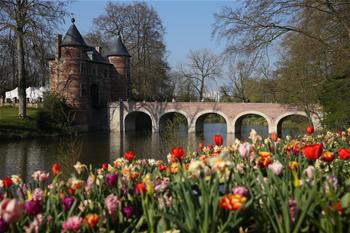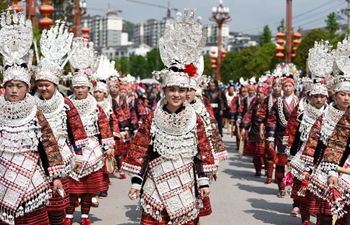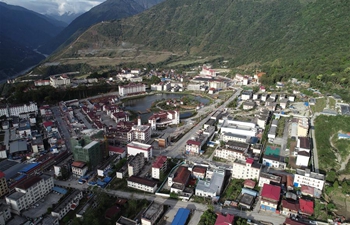ISLAMABAD, April 21 (Xinhua) -- Nearly 40 years later, 57-year-old Pakistani Zamir Ahmed Awan still vividly remembers the days he spent at Shanghai University in China as a machine engineering student.
"From 1980 to 1987, I stayed in China. At that time, the living conditions were less than ideal. But we got along quite well. The teacher treated us like her own sons," Awan recalled.
"At the time Pakistan's GDP was a bit higher than China's. But now I feel like China has raced 50 years ahead of Pakistan," he said.
Now Awan is a sinology professor at the National University of Sciences and Technology or NUST, one of the best universities in Pakistan. He has been working to establish a master's degree program in Chinese studies, specializing in the Belt and Road Initiative (BRI).
"The main aim (of the program) is to develop young Pakistanis and help them make contribution to the BRI," he said. "Our traditional friendship and the brotherhood between our two countries must be passed on to future generations."
Awan used to be a counselor at the Pakistani Embassy in China, in charge of exchanges in science, technology and higher education. He secured opportunities for more than 100 Pakistani students to learn in Chinese universities before returning to Pakistan in 2016.
"When I was back in Pakistan, I found lots of negative reports (about the BRI) in the media. This upset me a lot and I looked for ways to hit back," Awan said. "When someone writes a negative report, I write two positive ones in reply."
In 2013, the China-Pakistan Economic Corridor (CPEC) project was officially announced. As an important part of the BRI, the CPEC covers a wide range of bilateral cooperation in such fields as transportation, energy and industrial development. Led by growing funds into the project, China has become the biggest investor in Pakistan and its investment has created over 75,000 local jobs.
Awan also secured an agreement on internships for his students with the Sahiwal Coal Power Plant, the first major energy project under the CPEC. The construction of the power plant started in 2015 and completed in 22 months, now generating 9 billion kilowatts of electricity every year and filling about 25 percent of the power gap in Pakistan.
"We should send more of our NUST students here. They can learn a lot about the latest knowledge and technologies," Awan spoke highly of the China-built power plant.
With the internship program arranged, Awan is almost ready to enroll his new students. According to his plan, the master's program will kick off in September and he believed that more young people in Pakistan will be drawn to the BRI.
"We have to concentrate our efforts to develop our domestic economy, and learn from China. The Belt and Road Initiative gives us an ideal development pattern," Awan wrote in the syllabus of the forthcoming program.





